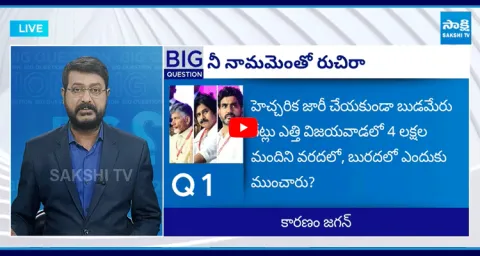
ఇంగ్లీష్ గ్రామర్ టెట్ + డీఎస్సీ పేపర్ - 1,2
Direct speech and Reported speech Direct speech(D.S.): When the exact words of the speakers are given within inverted commas, it is said to be Direct speech. In this speech the words are quoted or repeated as they are said by the speaker.
Direct speech and Reported speech
Direct speech(D.S.): When the exact words of the speakers are given within inverted commas, it is said to be Direct speech. In this speech the words are quoted or repeated as they are said by the speaker.
Ex: She said, "My mother is very happy."
He said, "We are not going to our village."
Reported speech(R.S.): When the substance of the actual words of the speaker is given, it is said to be a Reported speech or an indirect speech. In this speech the meaning of the spoken words is given in our own words.
Ex: She said that her mother was very happy.
He said that they were not going to their village.
Rules for changing Direct speech into Indirect speech:
* The reporting verb is changed to some extent according to the nature of the reported speech, but the tense of the reporting verb is never changed. (like tell, told, asked, requested, ordered, commanded, suggested, exclaim ed, questioned etc.)
* Inverted commas are removed.
* Question marks and exclamatory marks are removed they are chan ged into Assertive sentences.
* If the reporting verb in the present tense or future tense the tense of the direct speech is not changed.
* Present simple changes to past simple.
* Present continuous changes to past continuous.
* Present perfect changes to past perfect.
* Present perfect continuous changes to past perfect continuous.
* Past simple some times remains unchanged when D.S. contains historical events, conditional tense and "had" as principal verb. In all other cases past sim ple changes to past perfect.
* Past continuous changes to past perfect continuous.
* Past perfect remains unchanged.
* Past perfect continuous remains unchanged.
* Future simple changes to probable conditional.
* Future continuous changes to probable conditional.
* Tense of habitual actions and universal truths is not changed.
* 'If' or 'whether' is used in reported speech for 'yes or no' questions.
* Personal pronoun and some other words are changed in the reported speech as shown below.
1. D.S:- The teacher said, "The boy is lazy."
R.S:- The teacher said that the boy was lazy.
2. D.S:- The teacher said, "The boy is reading."
R.S:- The teacher said that the boy was reading.
3. D.S:- The teacher said, "The boy has done the work."
R.S:- The teacher said that the boy had done the work.
4. D.S:- The teacher said, "The boy has been waiting here for a long time."
R.S:- The teacher said that the boy had been waiting here for a long time.
5. D.S:- The teacher said, "Nehru was born on 14th Nov, 1889."
R.S:- The teacher said that Nehru was born on 14th Nov, 1889.
6. D.S:- The father said to me, "if you asked me, I would give it."
R.S:- My father told me that if I asked him, he would give it.
7. D.S:- She said, "When the officer came in, the assistants were not in the office."
R.S:- She said that When the officer came in, the assistants were not in the office.
8. D.S:- The girl said, "I had a wonderful dream."
R.S:- The girl said that she had a wonderful dream.
9. D.S:- The boy said, "The patient died in the morning."
R.S:- The boy said that the patient had died in the morning.
10. D.S:- He said, "I finished the work.
R.S:- He said that he had finished the work.
11. D.S:- The teacher said, "The boy was studying."
R.S:- The teacher said that the boy had been studying.
12. D.S:- You said to me, "she was mending the Jacket."
R.S:- You told me that she had been mending the jacket.
13. D.S:- Sony said, "I had studied the case."
R.S:- Sony said that she had studied the case.
14. D.S:- The teacher said, "The boy had been studying for a long time."
R.S:- The teacher said that the boy had been studying for a long time.
15. D.S:- The boy said, "I will go to school."
R.S:- The boy said that he would go to school.
16. D.S:- He said, "I shall go."
R.S:- He said that he would go.
17. D.S:- He said, "Ramu will be reading hard."
R.S:- He said that Ramu would be reading hard.
18. D.S:- He says, "My father is ill."
R.S:- He says that his father is ill.
19. D.S:- She will say, "My mother is going."
R.S:- She will say that her mother is going.
20. D.S:- The teacher said, "The sun rises in the east."
R.S:- The teacher said that the
sun rises in the east.














